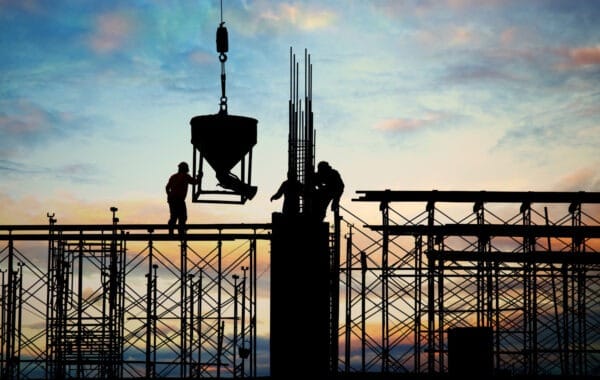
Need a Reliable Contractor for Laneway House Construction in Greater Vancouver?
If you live in Greater Vancouver and you’re looking to build a laneway house, you’re probably wondering where to start. Building a laneway house can be an exciting but daunting process, and finding a reliable contractor is key to ensuring the project runs smoothly. In this article, we’ll take a look at the steps you can take to find a reliable contractor for laneway house construction in Greater Vancouver.
Table of Contents
- Introduction
- What is a Laneway House?
- Why Build a Laneway House?
- Finding a Contractor
- Referrals from Friends and Family
- Online Searches
- Checking Credentials and Reviews
- Interviewing Potential Contractors
- Asking for References
- Discussing Budget and Timeline
- Clarifying the Scope of the Project
- Signing the Contract
- The Construction Process
- Conclusion
- FAQs
- What is the average cost of building a laneway house in Greater Vancouver?
- How long does it take to build a laneway house in Greater Vancouver?
- Do I need a permit to build a laneway house in Greater Vancouver?
- Can I customize the design of my laneway house?
- What kind of maintenance does a laneway house require?
What is a Laneway House?
A laneway house is a small, detached home that is built in the backyard of an existing home, usually where the garage or parking space is located. Laneway houses are typically no more than 1000 square feet in size and can be used as rental suites or for additional living space for family members.
Why Build a Laneway House?
There are many benefits to building a laneway house in Greater Vancouver. First and foremost, a laneway house can provide additional income through rental or Airbnb opportunities. They can also provide additional living space for family members or guests, and can even serve as a home office or studio space.
Finding a Contractor
When it comes to finding a contractor for laneway house construction in Greater Vancouver, there are a few different approaches you can take.
Referrals from Friends and Family
One of the best ways to find a reliable contractor is through word-of-mouth referrals. Ask friends and family members if they know of any reputable contractors who have experience building laneway houses.
Online Searches
Another option is to search online for contractors in your area who specialize in laneway house construction. Look for contractors with good reviews and ratings, and check out their portfolio of previous projects.
Checking Credentials and Reviews
Before hiring a contractor, be sure to check their credentials and reviews. Make sure they have the proper licensing and insurance, and check online reviews to see what previous clients have to say about their work.
Interviewing Potential Contractors
Once you’ve narrowed down your list of potential contractors, it’s time to start interviewing them to see which one is the best fit for your project.
Asking for References
Be sure to ask for references from previous clients, and follow up with them to get a sense of the contractor’s work ethic and professionalism.
Discussing Budget and Timeline
It’s important to discuss your budget and timeline with potential contractors to ensure they can meet your needs. Be upfront about your budget, and make sure the contractor can complete the project within your desired timeline.
Clarifying the Scope of the Project
Be sure to clarify the scope of the project with potential contractors, including the design, materials, and any additional features you’d like to include.
Signing the Contract
Once you’ve chosen a contractor, it’s time to sign the contract. Make sure the contract includes a detailed description of the project scope, budget, timeline.
The Construction Process
Once the contract is signed, the construction process can begin. Depending on the complexity of the project, the construction process can take anywhere from a few months to a year or more.
During the construction process, it’s important to maintain open communication with the contractor and keep track of the project’s progress. This can help you identify any issues that arise early on and ensure that the project stays on track.
Conclusion
Building a laneway house in Greater Vancouver can be an exciting but daunting process, but finding a reliable contractor can make all the difference. By following the steps outlined in this article, you can find a contractor who is experienced, professional, and able to bring your vision to life.
If you’re ready to start the process of building your laneway house, be sure to do your research, ask for referrals, and interview potential contractors to find the best fit for your needs. With the right contractor on board, you can create a beautiful, functional space that adds value to your home and your life.
FAQs
- What is the average cost of building a laneway house in Greater Vancouver?
The cost of building a laneway house in Greater Vancouver can vary widely depending on the size and complexity of the project. However, the average cost is typically between $250,000 and $350,000.
- How long does it take to build a laneway house in Greater Vancouver?
The construction timeline for a laneway house in Greater Vancouver can vary depending on the scope of the project and the contractor’s availability. However, most projects take anywhere from six months to a year or more to complete.
- Do I need a permit to build a laneway house in Greater Vancouver?
Yes, you will need a permit to build a laneway house in Greater Vancouver. The permit process can be complex, so it’s important to work with a contractor who is familiar with the requirements and can help you navigate the process.
- Can I customize the design of my laneway house?
Yes, you can customize the design of your laneway house to meet your specific needs and preferences. Your contractor can work with you to create a design that fits your lifestyle and budget.
- What kind of maintenance does a laneway house require?
Like any home, a laneway house requires regular maintenance to keep it in good condition. This may include tasks like cleaning gutters, replacing filters, and inspecting the roof and foundation for damage. Your contractor can provide guidance on the specific maintenance tasks required for your laneway house.


